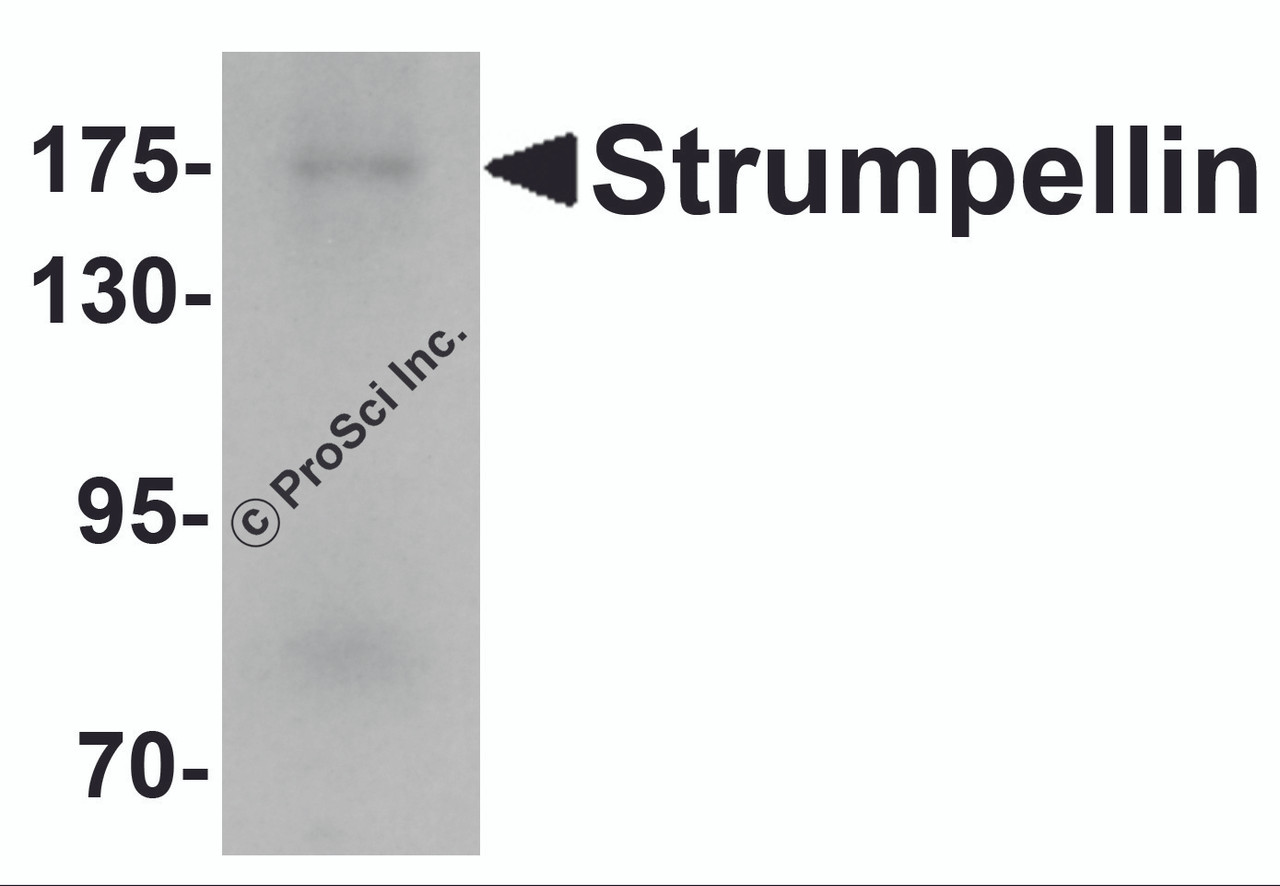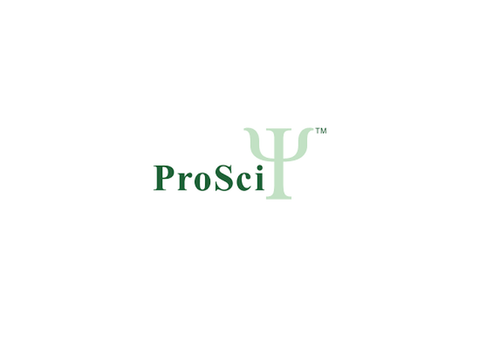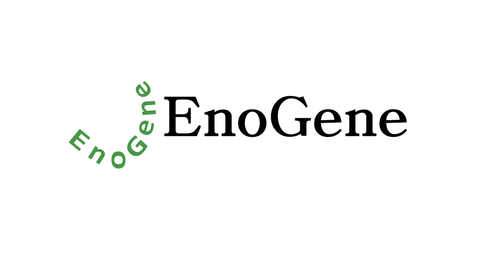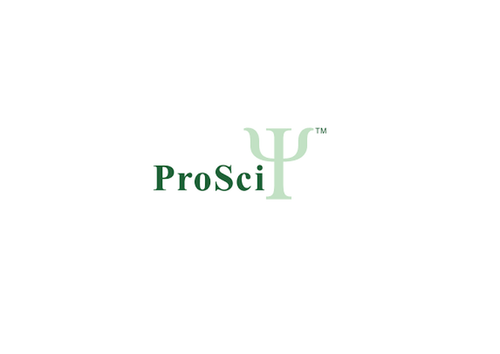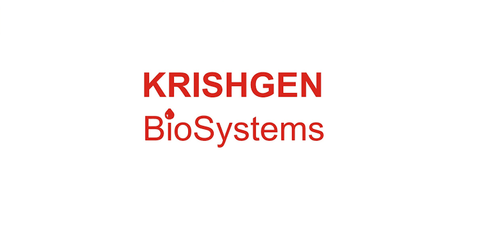Product Description
Strumpellin Antibody | 6497 | ProSci
Host: Rabbit
Reactivity: Human, Mouse, Rat
Homology: N/A
Immunogen: Strumpellin antibody was raised against a 19 amino acid synthetic peptide near the carboxy terminus of human Strumpellin.
The immunogen is located within the last 50 amino acids of Strumpellin.
Research Area: Neuroscience
Tested Application: E, WB
Application: Strumpellin antibody can be used for detection of Strumpellin by Western blot at 1 μg/mL.
Antibody validated: Western Blot in human samples. All other applications and species not yet tested.
Specificiy: Multiple isoforms of Strumpellin are known to exist.
Positive Control 1: Cat. No. 1316 - Human Ovary Tissue Lysate
Positive Control 2: N/A
Positive Control 3: N/A
Positive Control 4: N/A
Positive Control 5: N/A
Positive Control 6: N/A
Molecular Weight: N/A
Validation: N/A
Isoform: N/A
Purification: Strumpellin Antibody is affinity chromatography purified via peptide column.
Clonality: Polyclonal
Clone: N/A
Isotype: IgG
Conjugate: Unconjugated
Physical State: Liquid
Buffer: Strumpellin Antibody is supplied in PBS containing 0.02% sodium azide.
Concentration: 1 mg/mL
Storage Condition: Strumpellin antibody can be stored at 4˚C for three months and -20˚C, stable for up to one year. As with all antibodies care should be taken to avoid repeated freeze thaw cycles. Antibodies should not be exposed to prolonged high temperatures.
Alternate Name: Strumpellin Antibody: RTSC, SPG8, WASH complex subunit strumpellin
User Note: Optimal dilutions for each application to be determined by the researcher.
BACKGROUND: Strumpellin Antibody: Strumpellin is a ubiquitously expressed, multi-transmembrane and spectrin-repeat-containing protein. It is named for Strumpell disease; a progressive upper-motor neurodegenerative disease termed hereditary spastic paraplegia (HSP) . The Strumpellin gene maps to the eighth HSP locus (SPG8) on chromosome 8p24.13. Three families liked to this locus have mutations in the Strumpellin gene; rescue studies of zebrafish with decreased Strumpellin expression with Strumpellin mRNA containing these mutations showed impaired normal function of this protein. Recent studies suggest that Strumpellin may also be involved in protein aggregation diseases.
 Euro
Euro
 USD
USD
 British Pound
British Pound
 NULL
NULL


